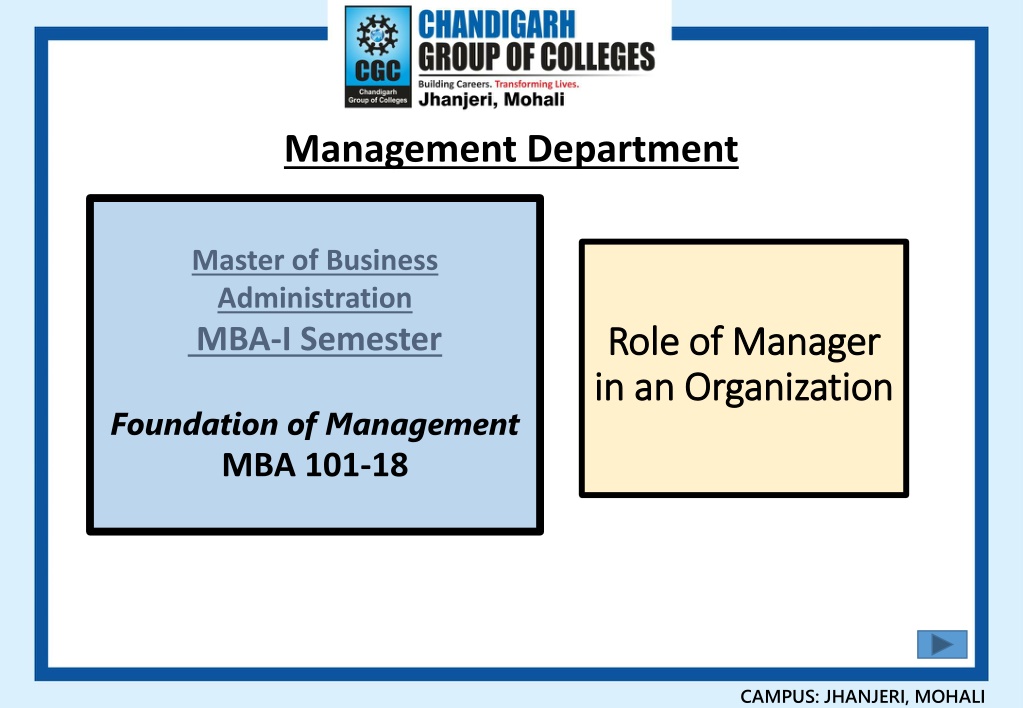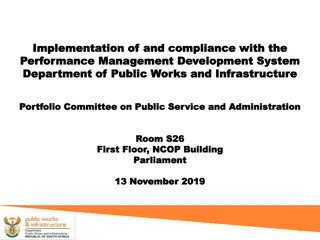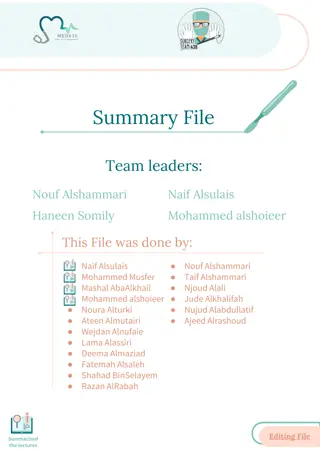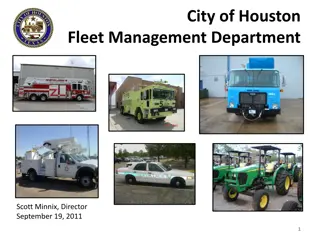Management Department
Managers are essential in organizations for efficient activity completion, goal achievement, and staff supervision. They fulfill various roles including interpersonal, informational, and decision-making functions to ensure organizational success.
Download Presentation

Please find below an Image/Link to download the presentation.
The content on the website is provided AS IS for your information and personal use only. It may not be sold, licensed, or shared on other websites without obtaining consent from the author.If you encounter any issues during the download, it is possible that the publisher has removed the file from their server.
You are allowed to download the files provided on this website for personal or commercial use, subject to the condition that they are used lawfully. All files are the property of their respective owners.
The content on the website is provided AS IS for your information and personal use only. It may not be sold, licensed, or shared on other websites without obtaining consent from the author.
E N D
Presentation Transcript
Management Department Master of Business Administration MBA-I Semester Role of Manager Role of Manager in an Organization in an Organization Foundation of Management MBA 101-18 CAMPUS: JHANJERI, MOHALI
Last Lecture. Management Definition of Management Is management art or science? Google s Management
Todays Agenda. Levels of Management Who is Manager? Roles of Manager Manager responsibility Case Study on levels of Management
Who is a Manager? A person responsible for controlling or administering an organization or group of staff. Managers are responsible for the processes of getting activities completed efficiently with and through other people and setting and achieving the firm's goals through the execution of four basic management functions: planning, organizing, leading, and controlling.
Interpersonal roles Three interpersonal roles help the manager keep the organization running smoothly. Managers play the figurehead role when they perform duties that are ceremonial and symbolic in nature. These include greeting the visitors, attending social functions involving their subordinates (like weddings, funerals), handing out merit certificates to workers showing promise etc. The leadership role includes hiring, training, motivating and disciplining employees. Managers play the liaison role when they serve as a connecting link between their organisation and others or between their units and other organisational units.
Informational roles Mintzberg mentioned that receiving and communicating information are perhaps the most important aspects of a manager s job. In order to make the right decisions, managers need information from various sources. Typically, this activity is done through reading magazines and talking with others to learn about changes in the customers tastes, competitors moves and the like. Mintzberg called this the monitor role. In the disseminator role, the manager distributes important information to subordinates that would otherwise be inaccessible to them. Managers also perform the spokesperson role when they represent the organisation to outsiders.
Decisional roles There are four decision roles that the manager adopts. In the role of entrepreneur, the manager tries to improve the unit. He initiates planned changes to adapt to environmental challenges. As disturbance handlers, managers respond to situations that are beyond their control such as strikes, shortages of materials, complaints, grievances, etc. In the role of a resource allocator, managers are responsible for allocating human, physical and monetary resources. As negotiators, managers not only mediate in internal conflicts but also carry out negotiations with other units to gain advantages for their own unit.
Case Study Case Study Dheeraj, Neeraj and Suraj are three friends. They work in the same company. They are managers but they belong to three different levels of management. Every day they meet and discuss their work with each other. One day they were having a conversation. Dheeraj said, These days I am having a lot of problems motivating the people at Shop Floor. I have decided to purchase two new machines. I know I will have to set an example by being the best leader. Neeraj said, I am having problem with knowing the exact requirement of people in my department. Different polices have to be informed to the employees so that they become aware of our company s goals. I also have to coordinate with other departmental heads to know their requirements. Suraj said, I have to decide for long term. I know I will be ultimately responsible for every activity. All the policies and strategies require a lot of planning before formulation. In the above case identify the different levels of management these three friends belong to.
Answer Answer 1.Dheeraj belongs to lower level of management. Lower level manager works at the Shop Floor level. Shop Floor is the place where workers work and machines are kept. 2.Neeraj belongs to middle level management. Middle level manager decides the number of employees to be required in his department. He also has to coordinate with other departmental heads though at the same level. 3.Suraj belongs to the Top level of management. Top level manager is required to plan for long term basis. He is responsible for all the activities in the organisation. Policies and strategies are formulated by the Top management.
Next Lecture. Nature of Management



























